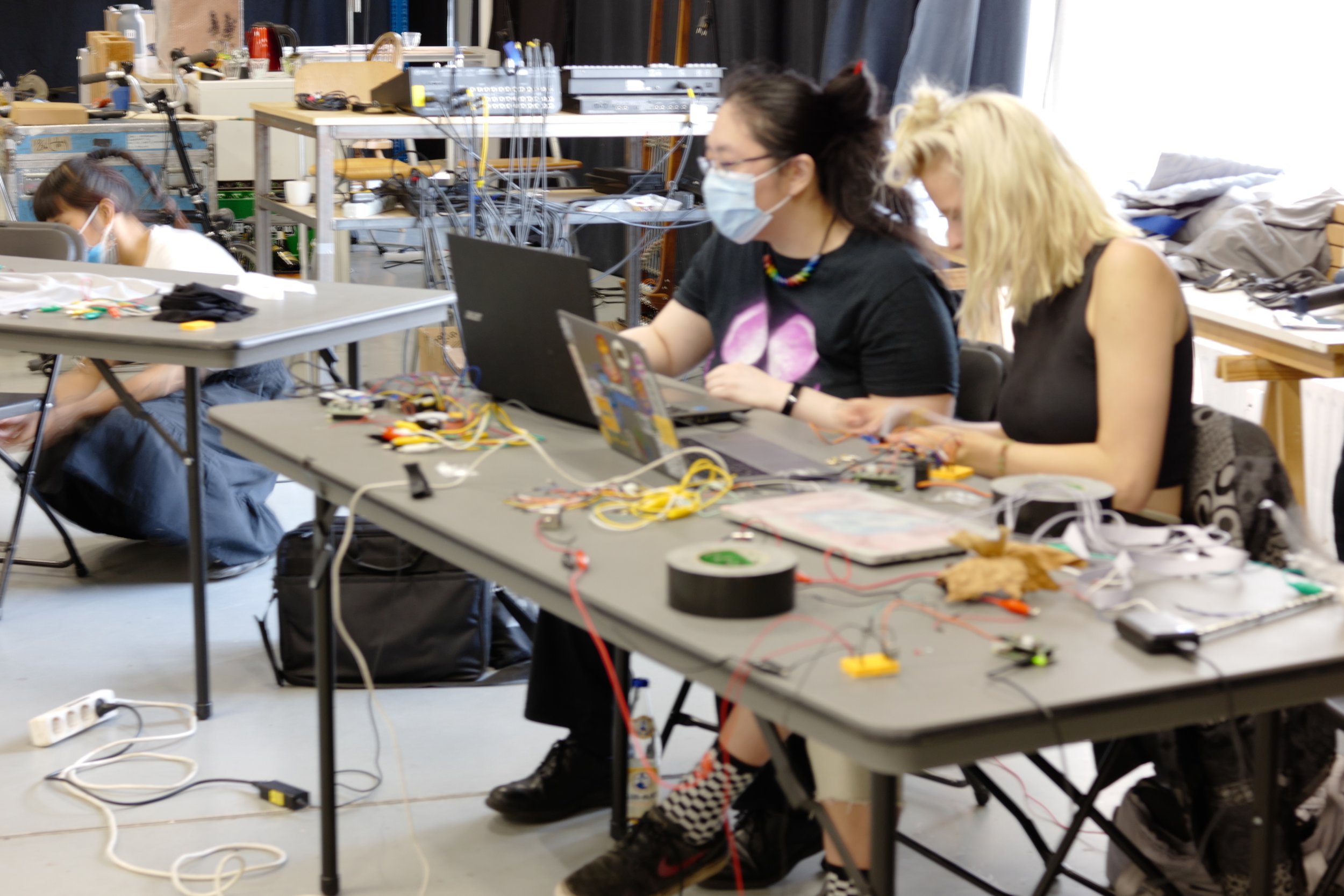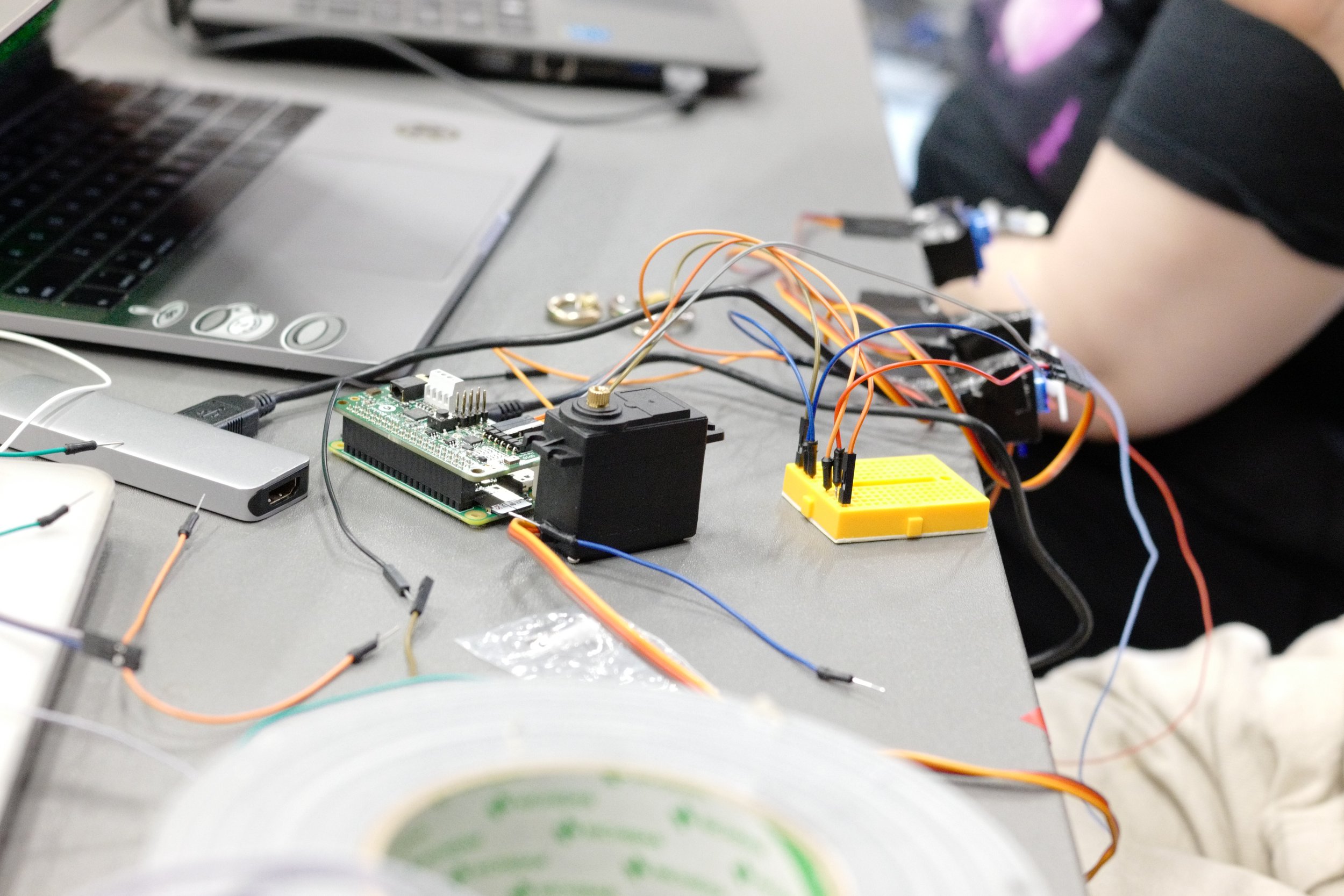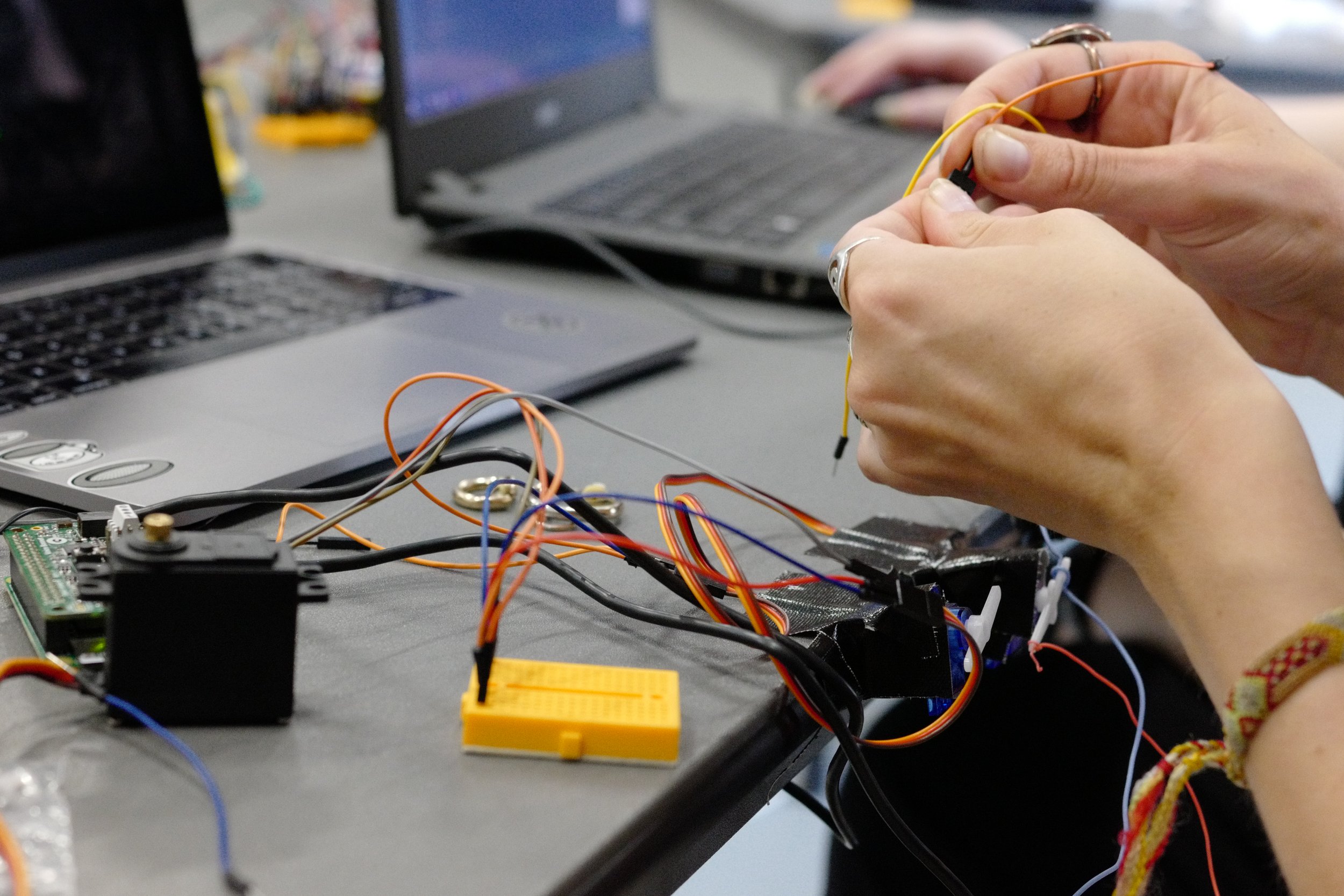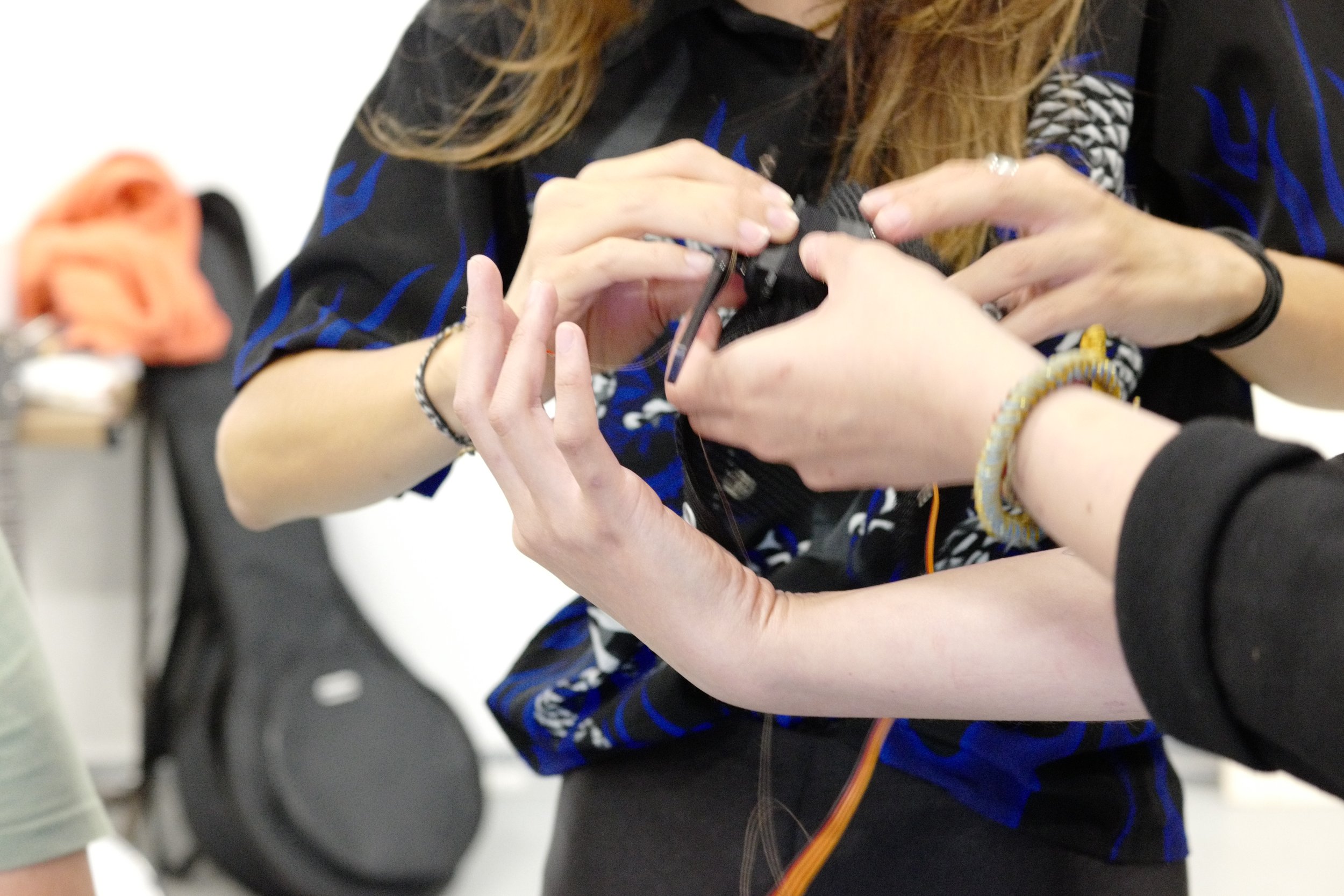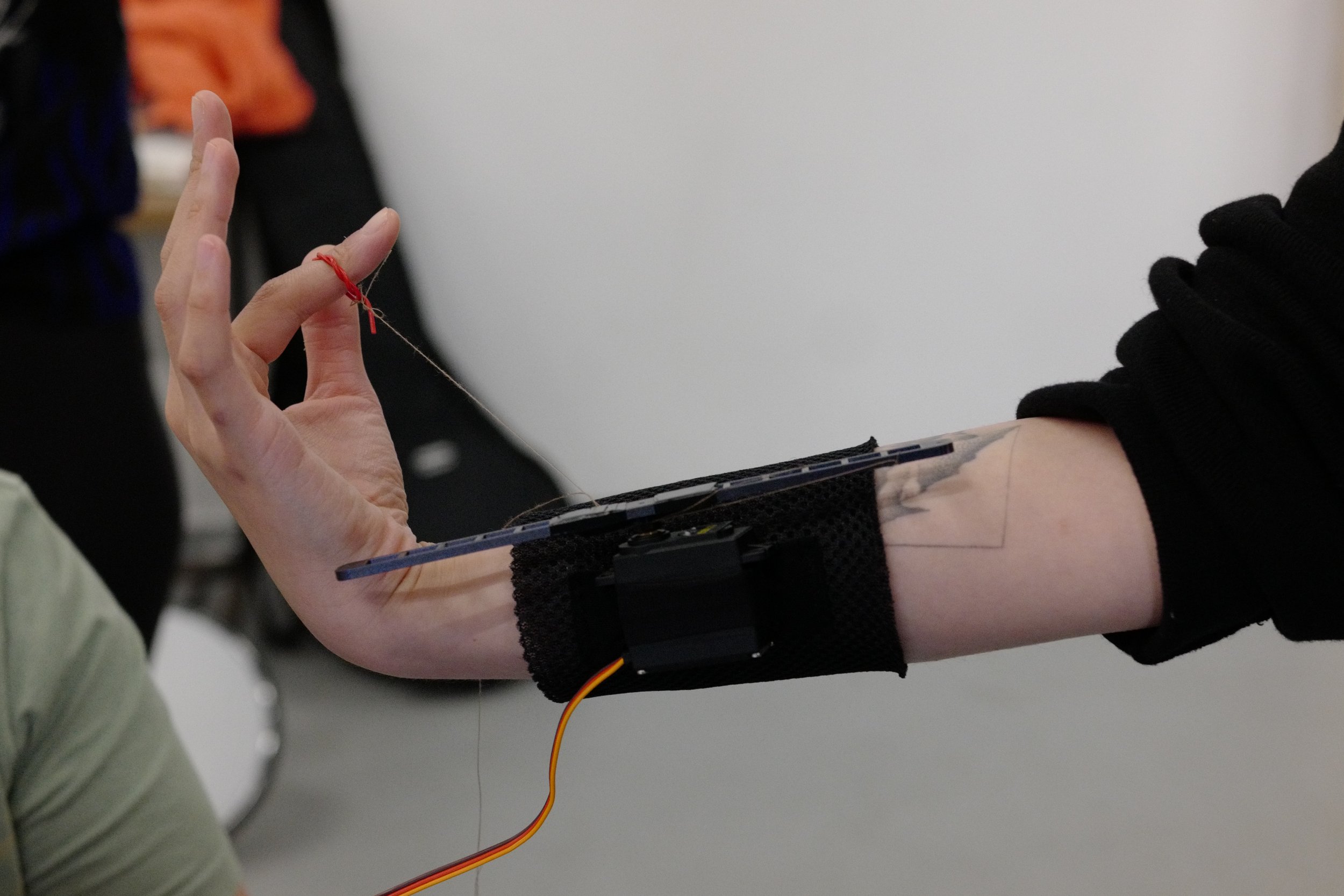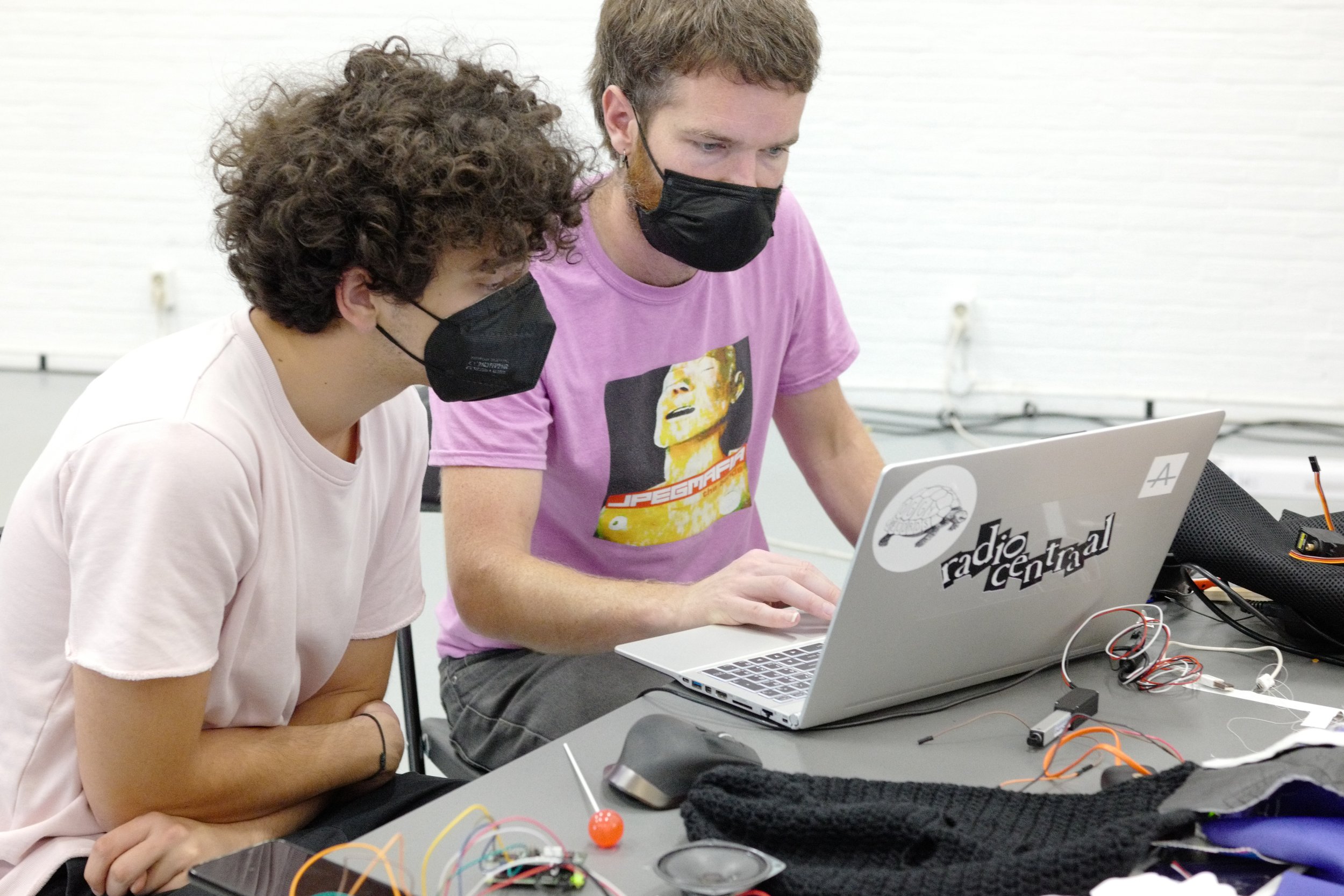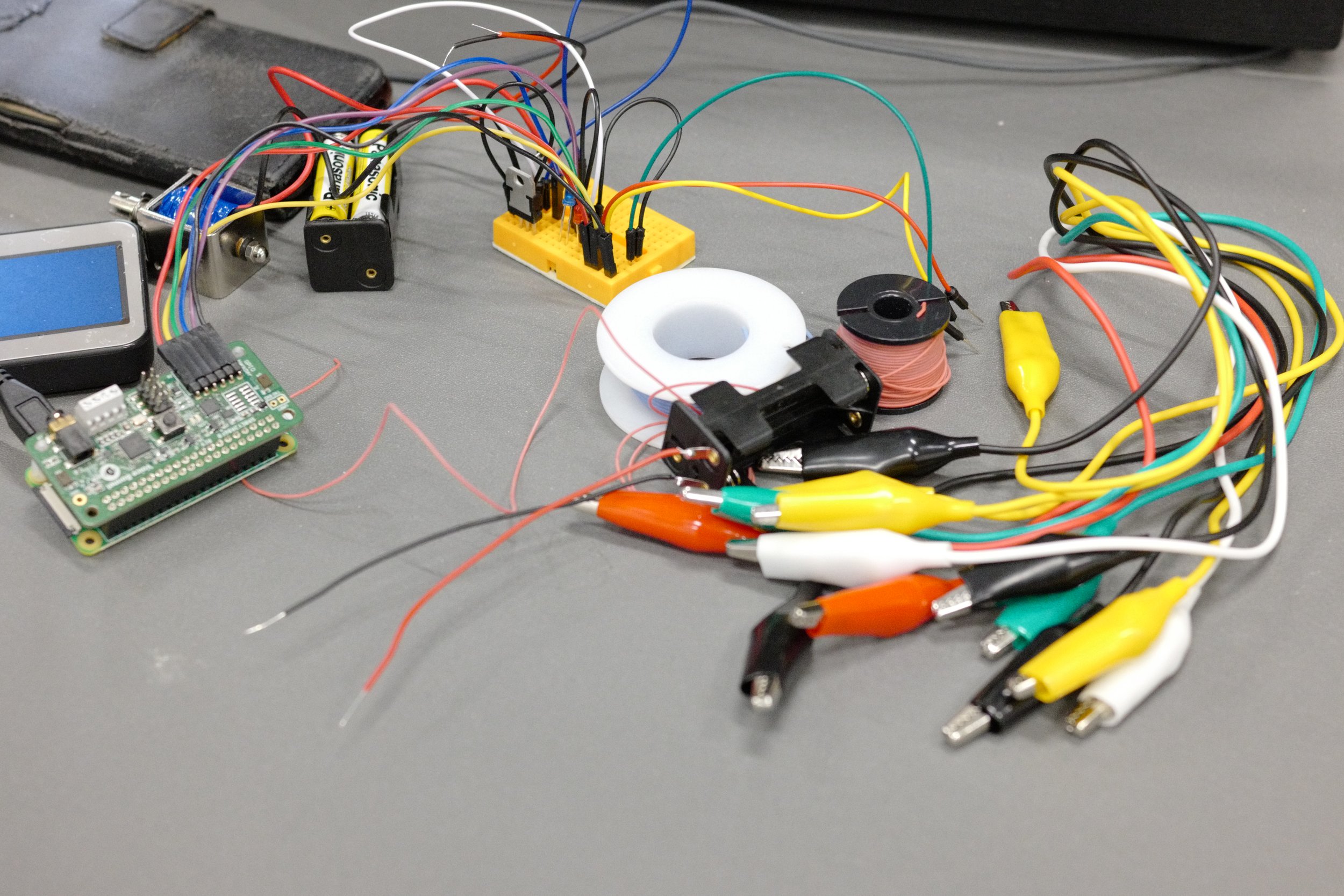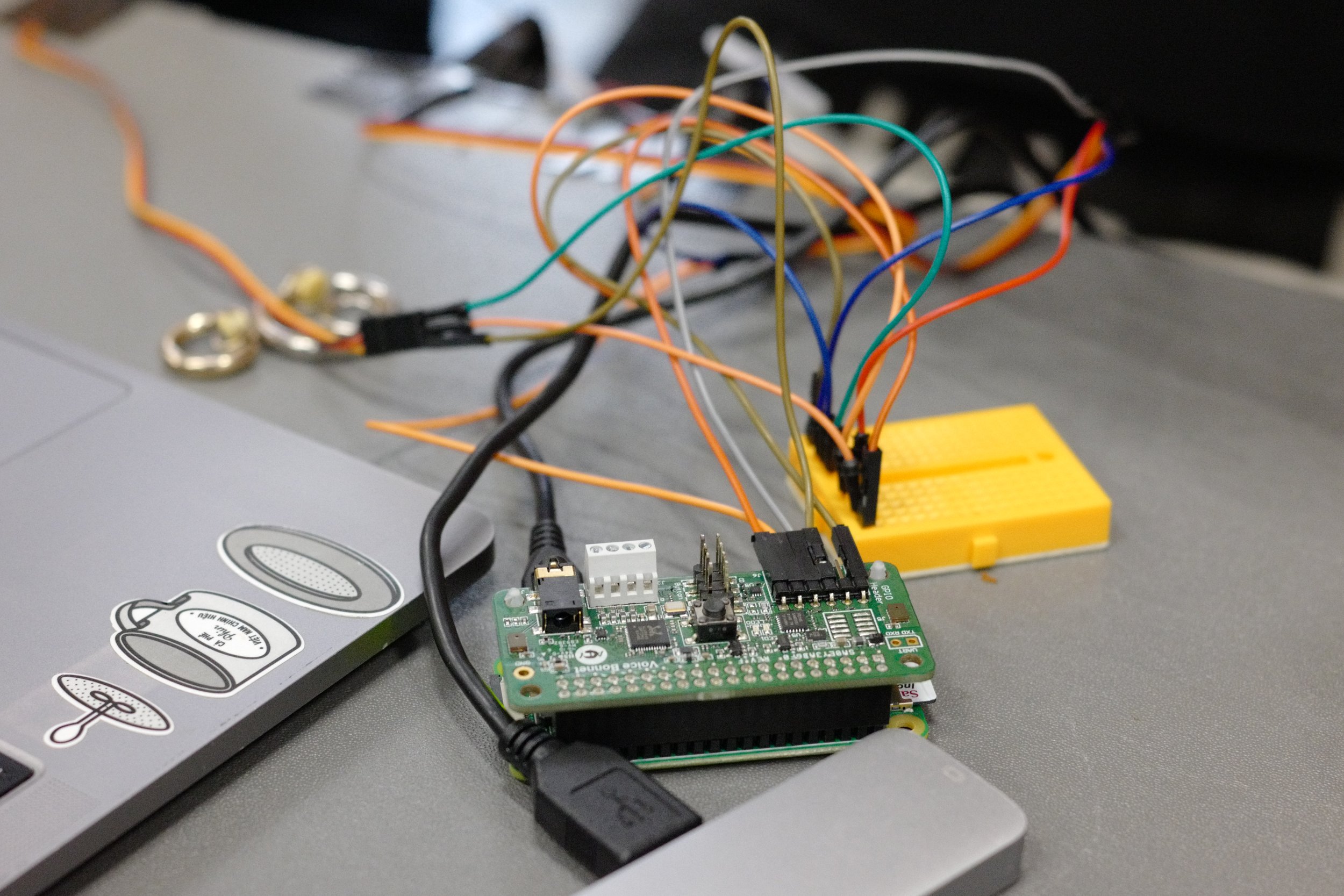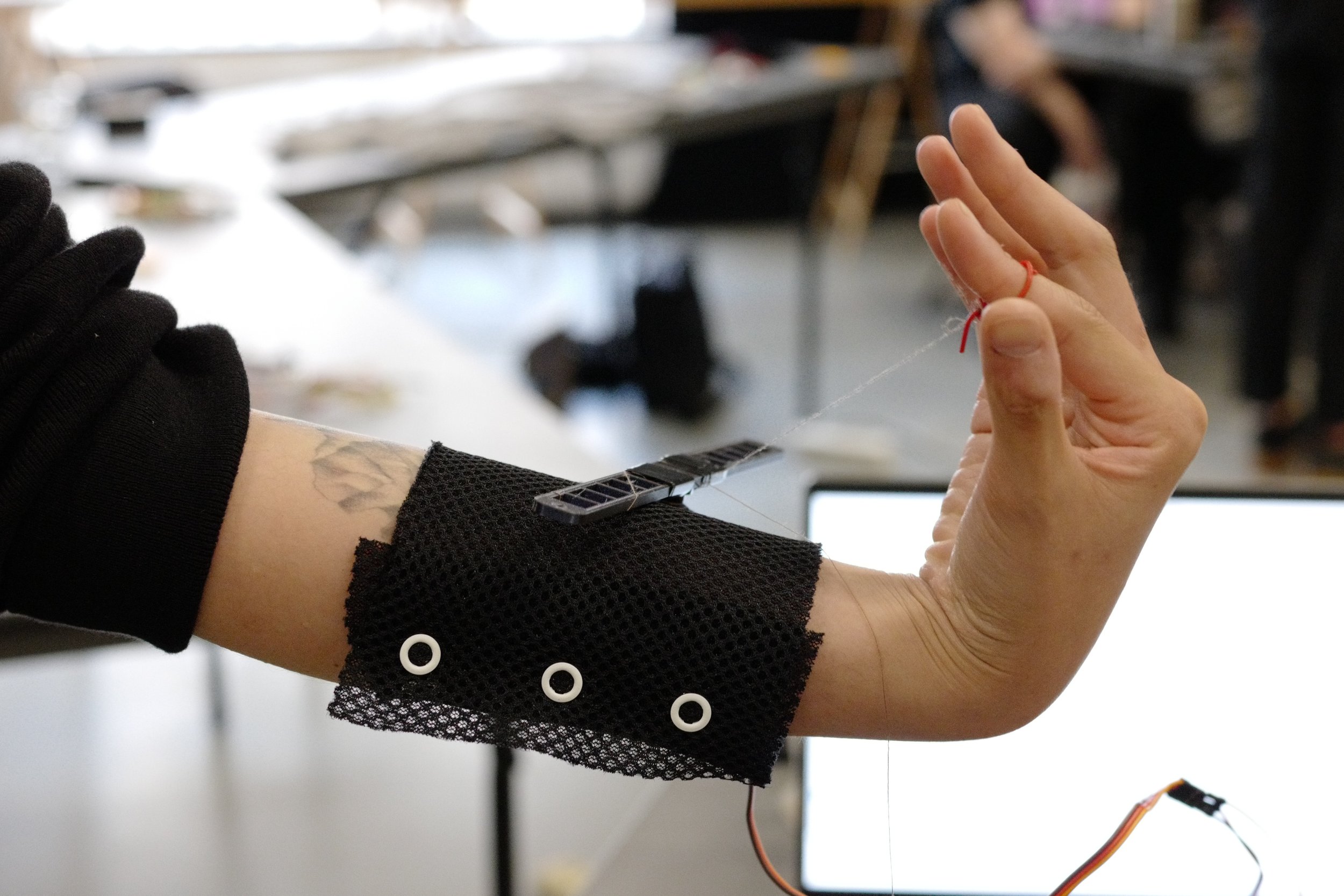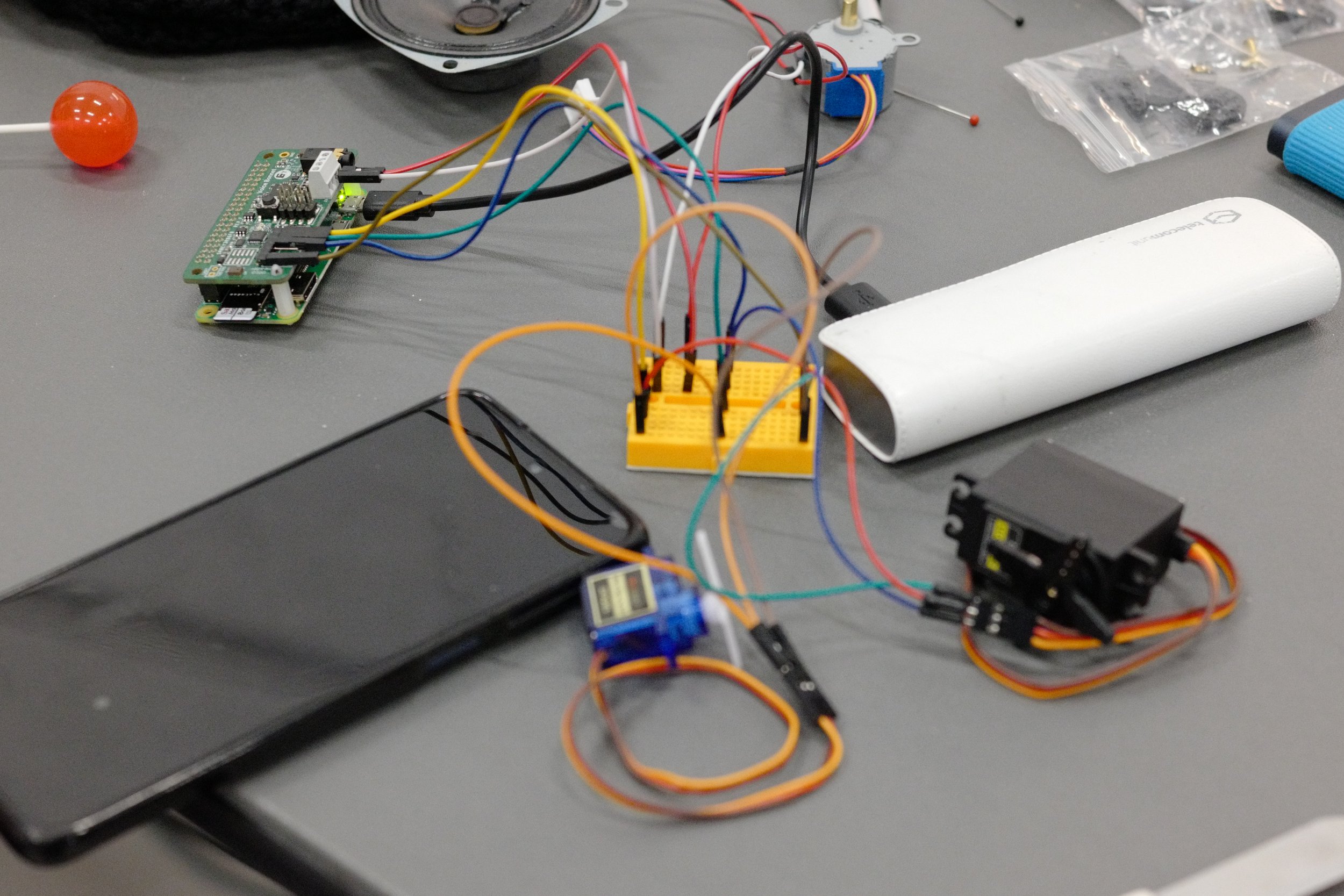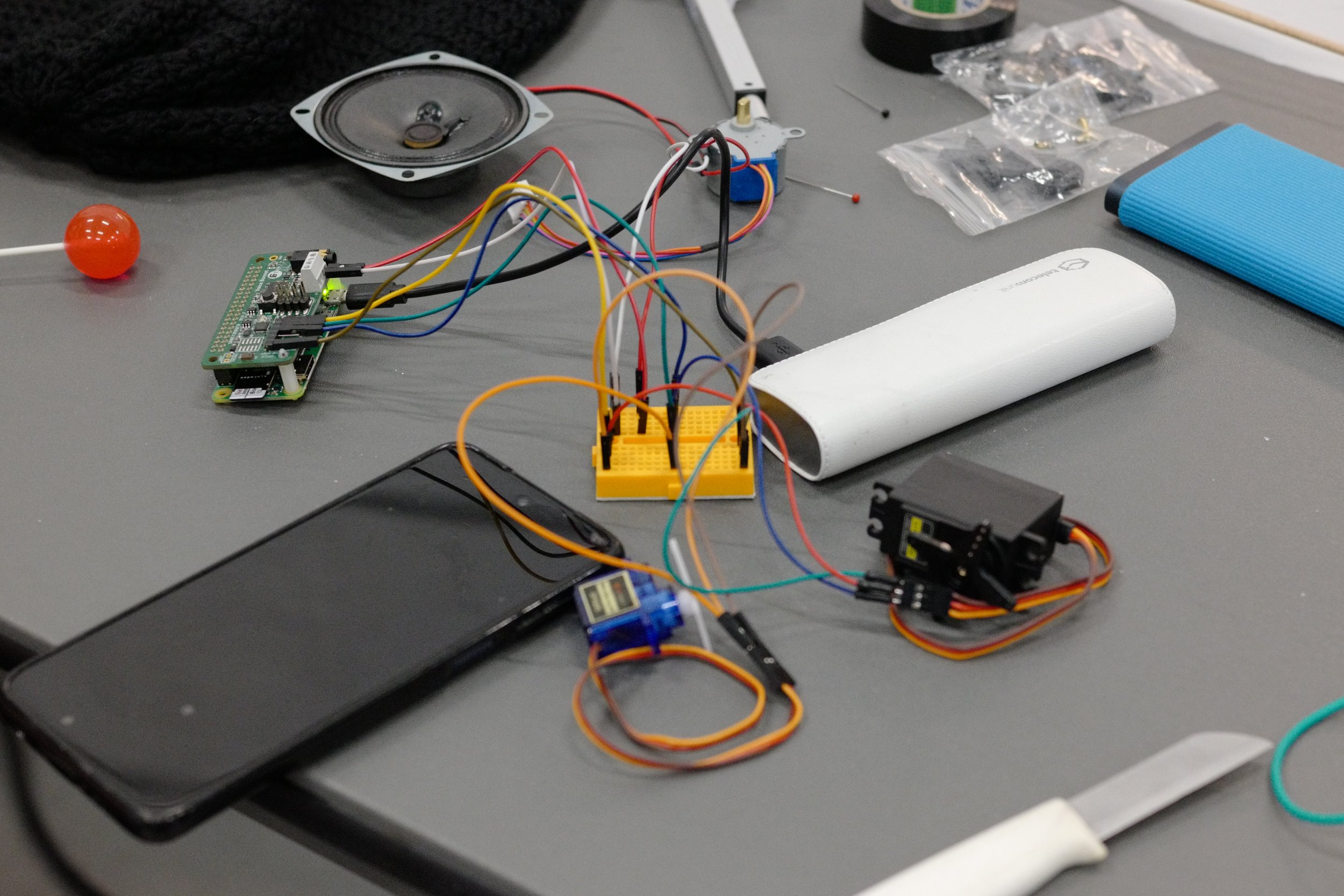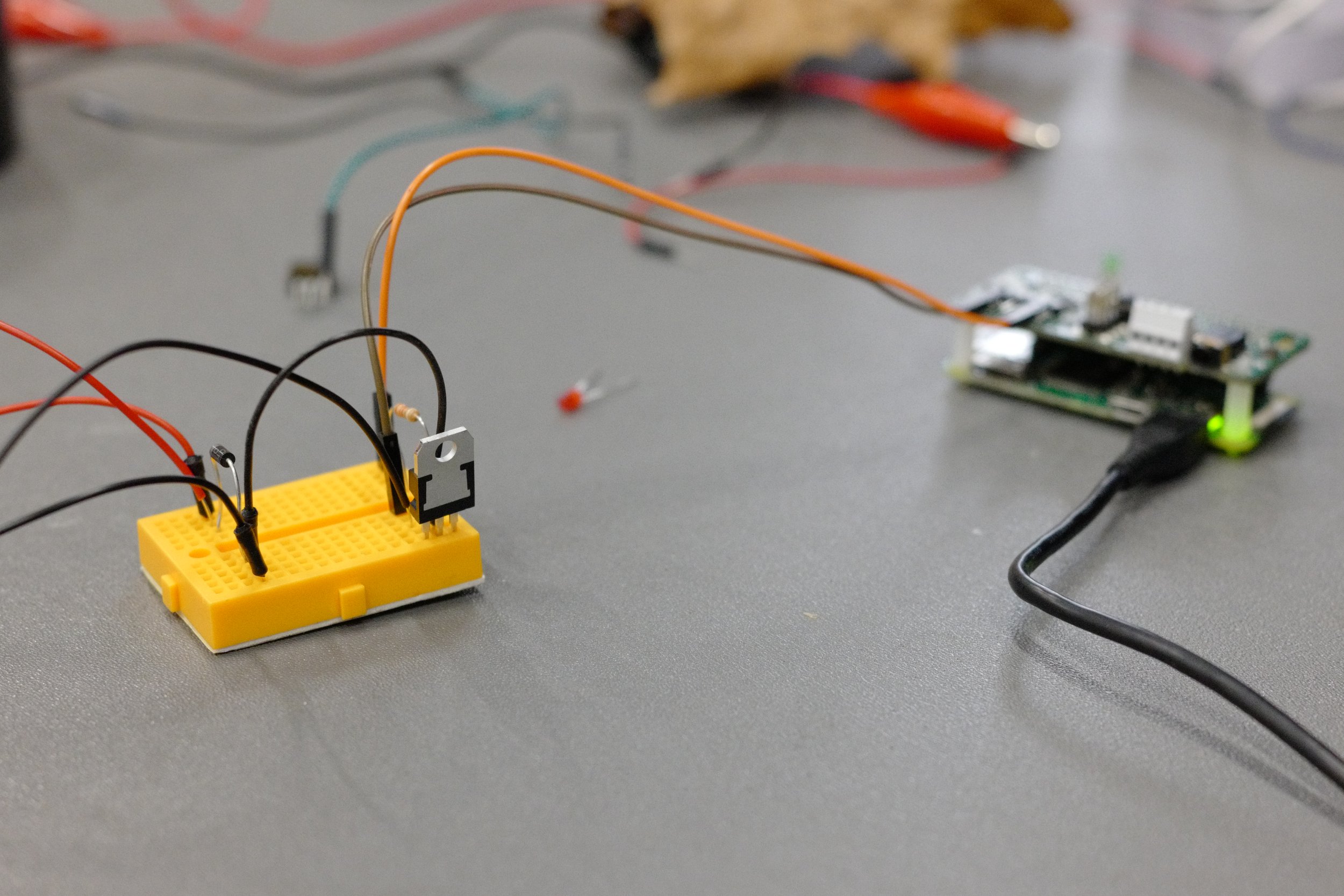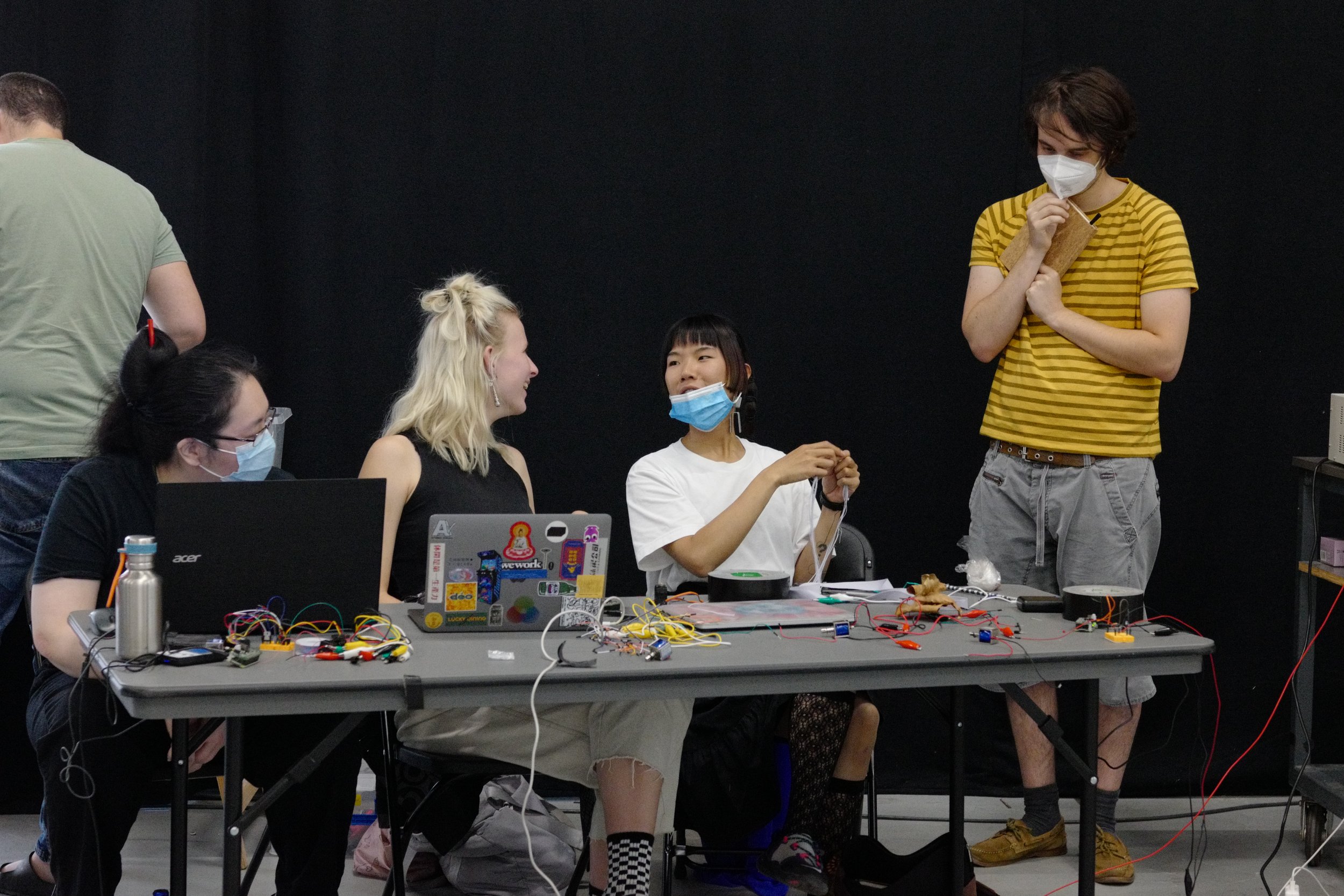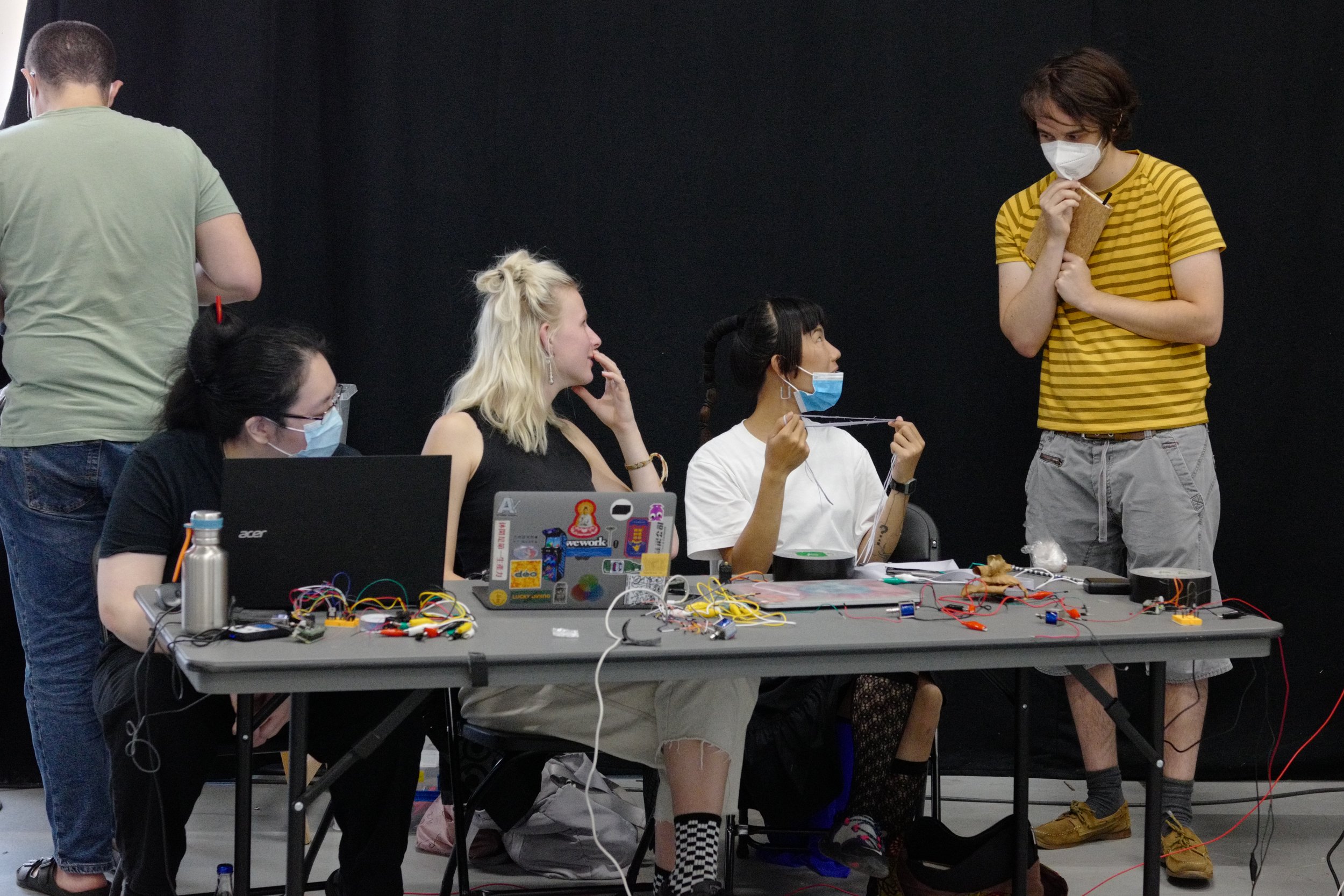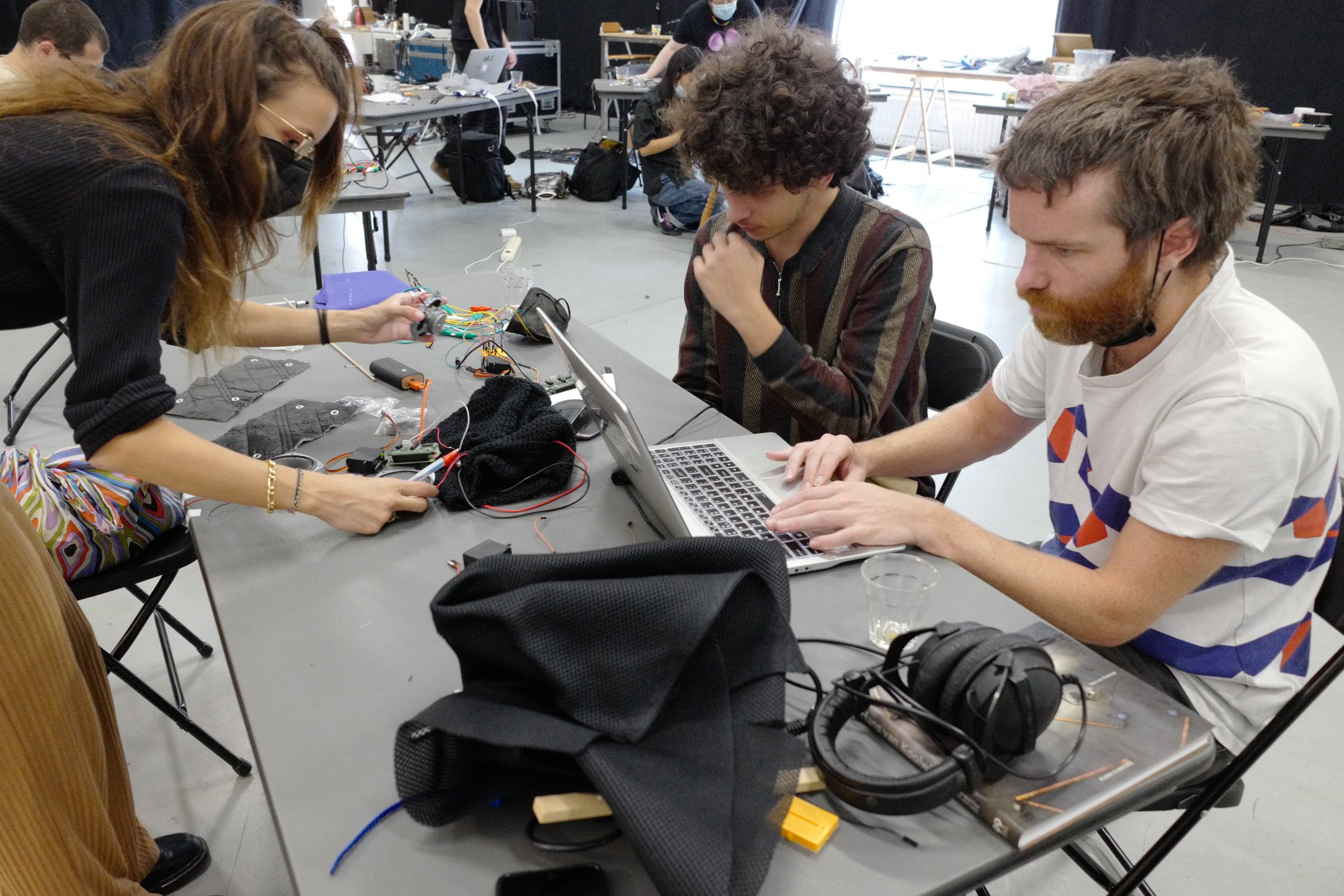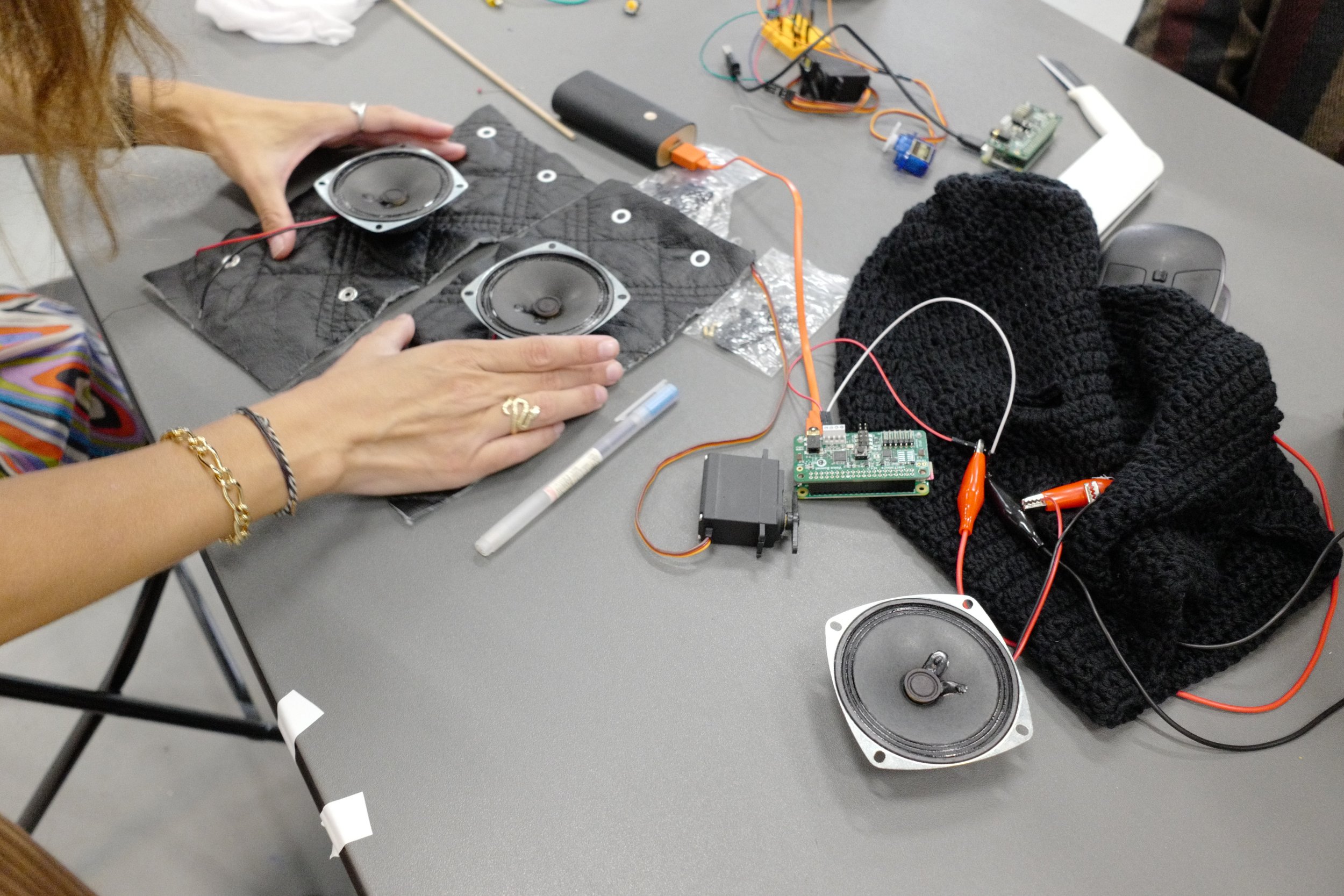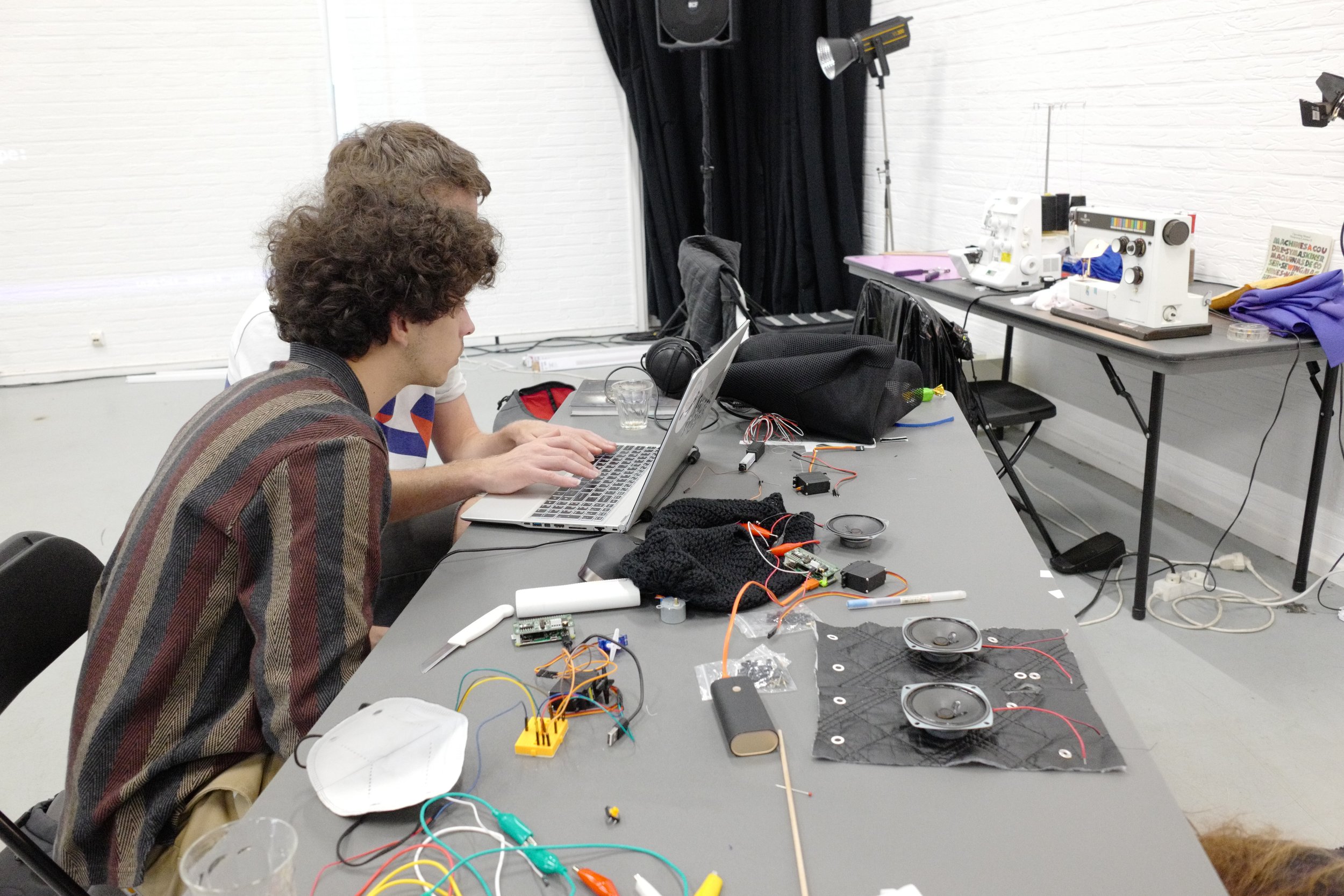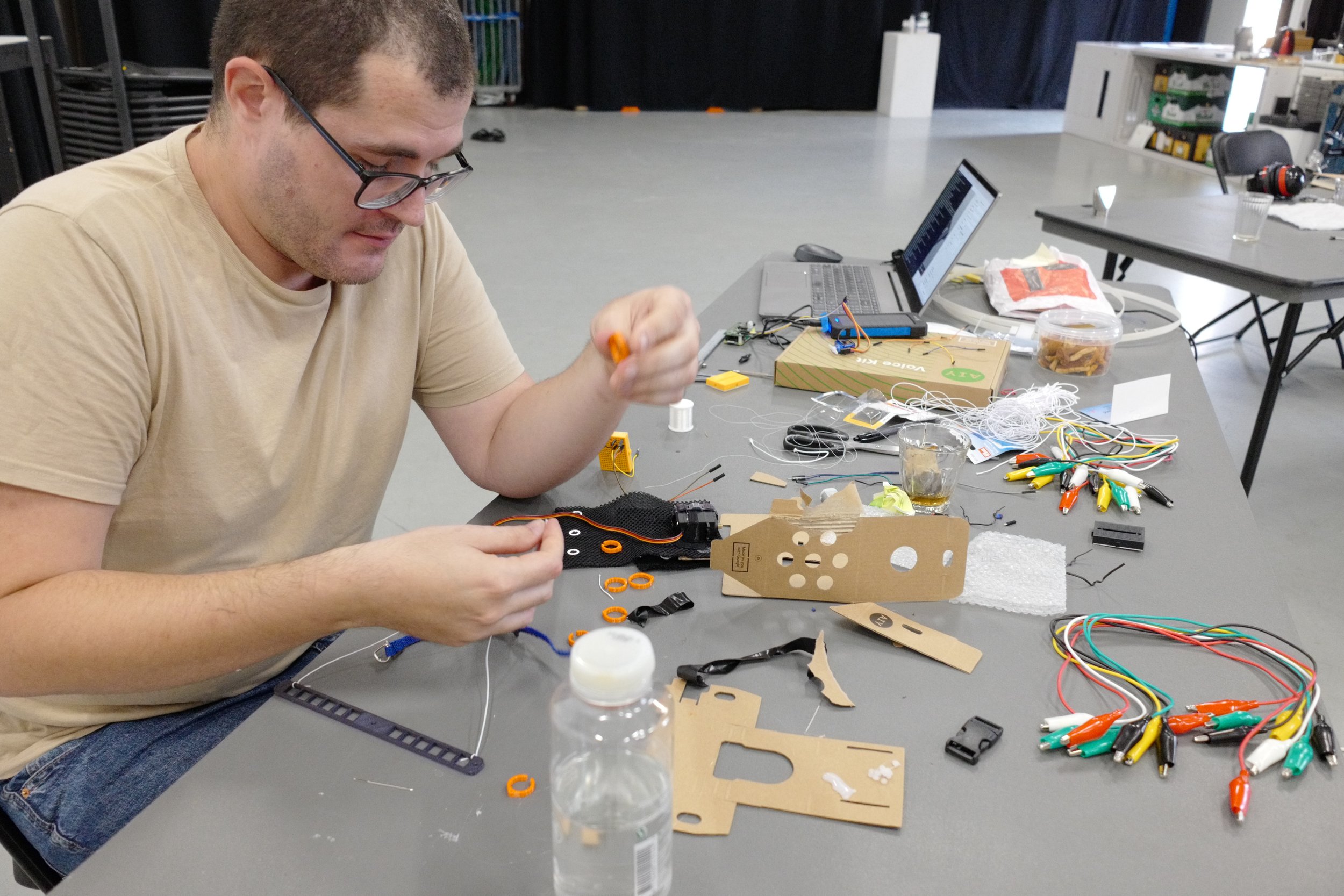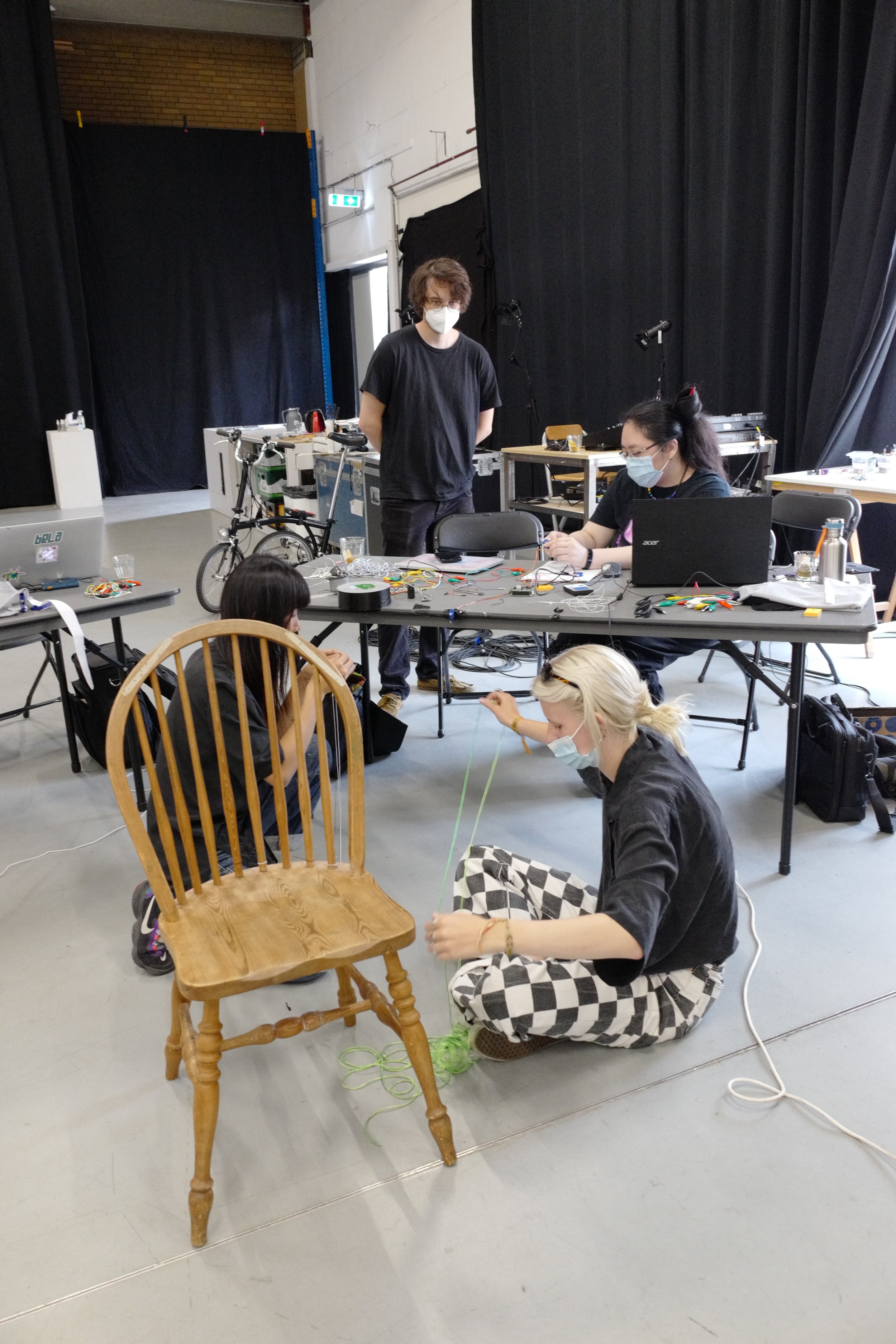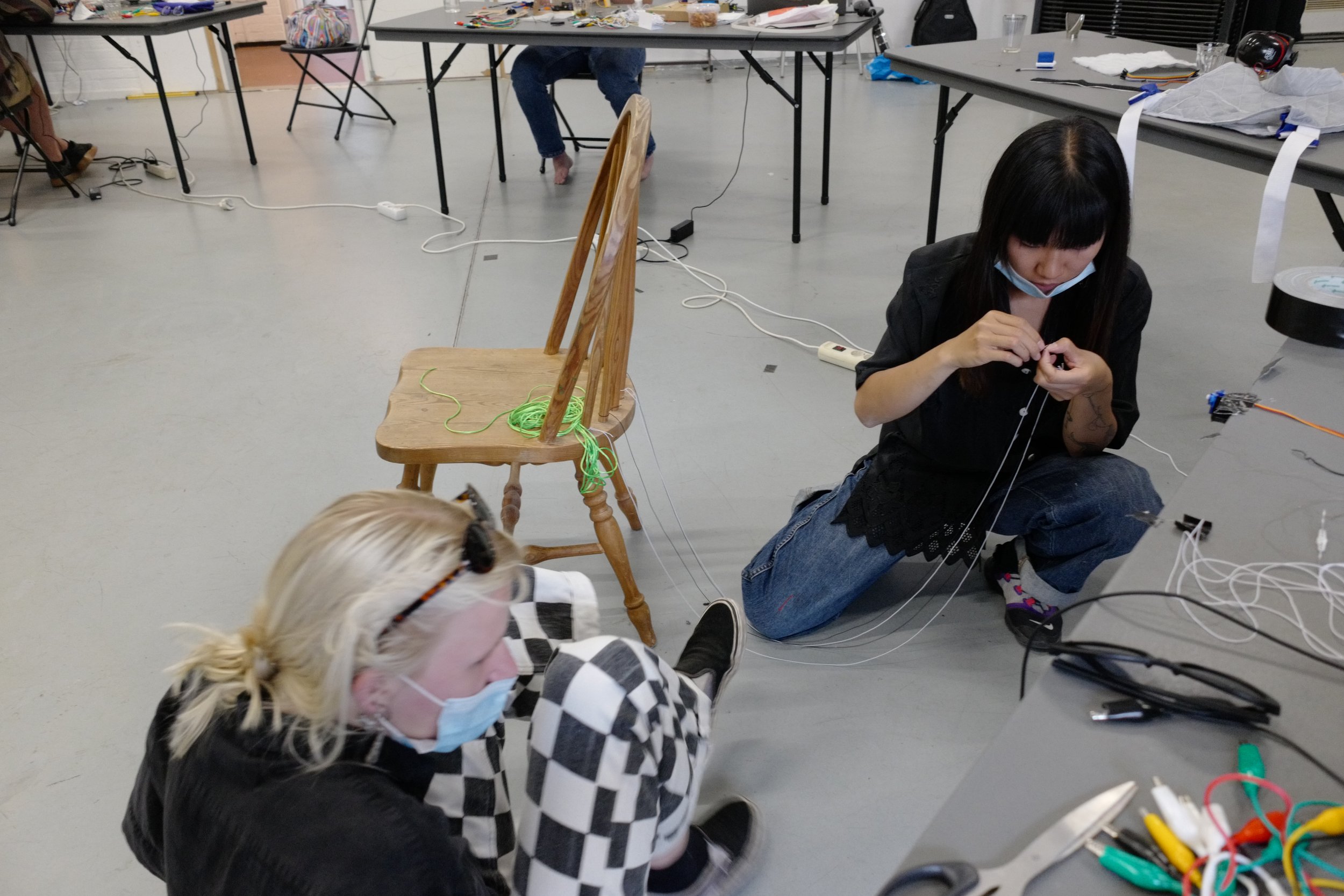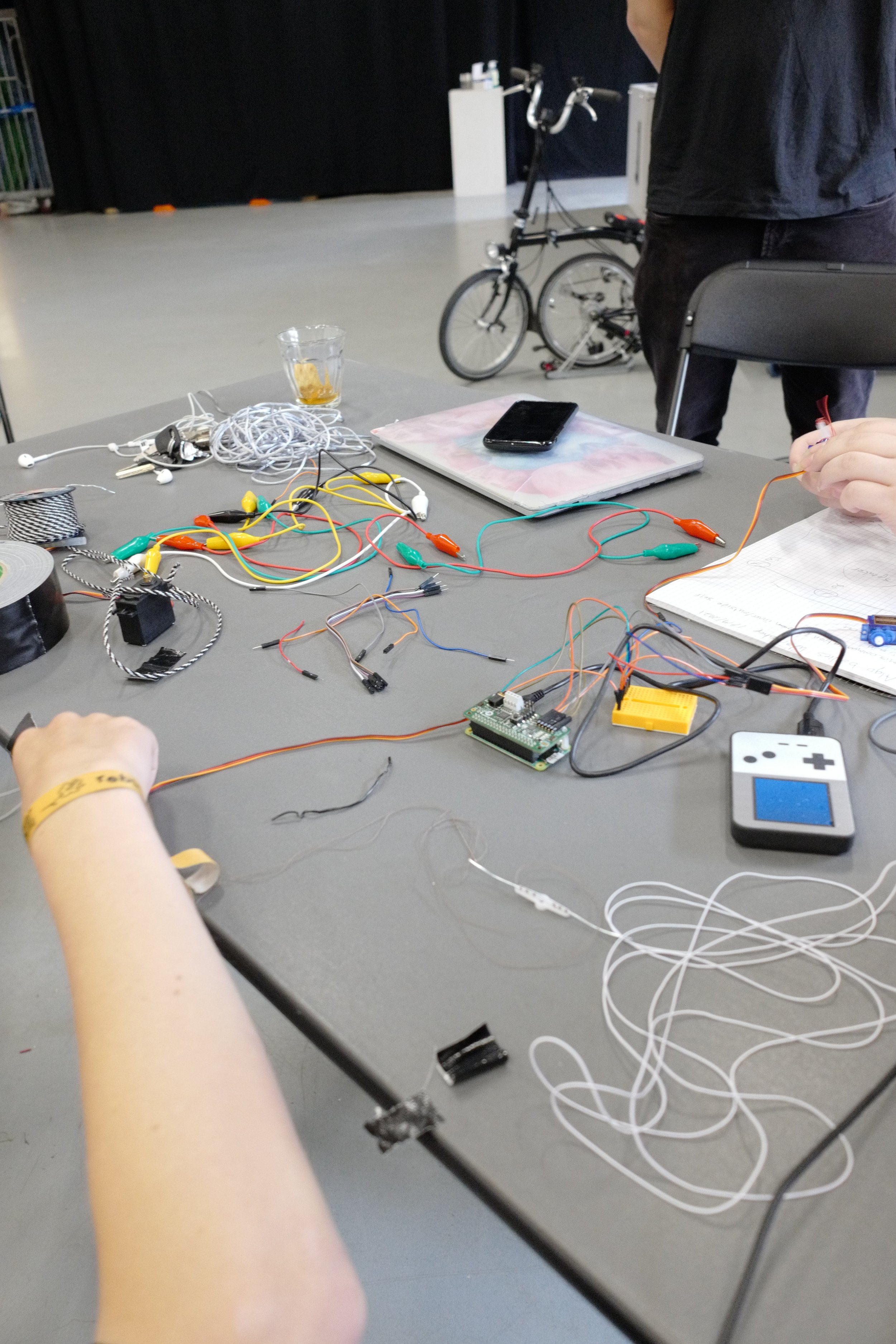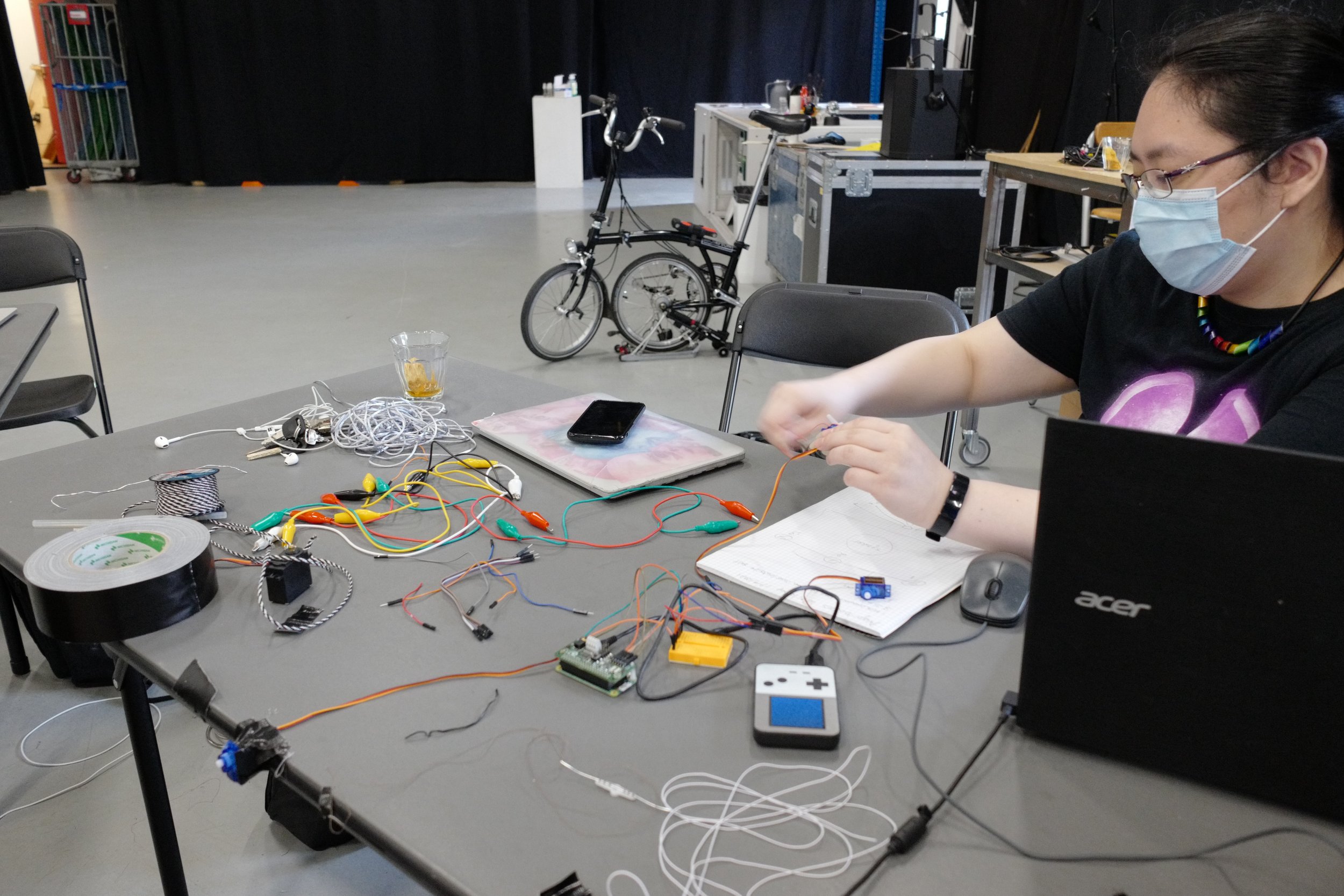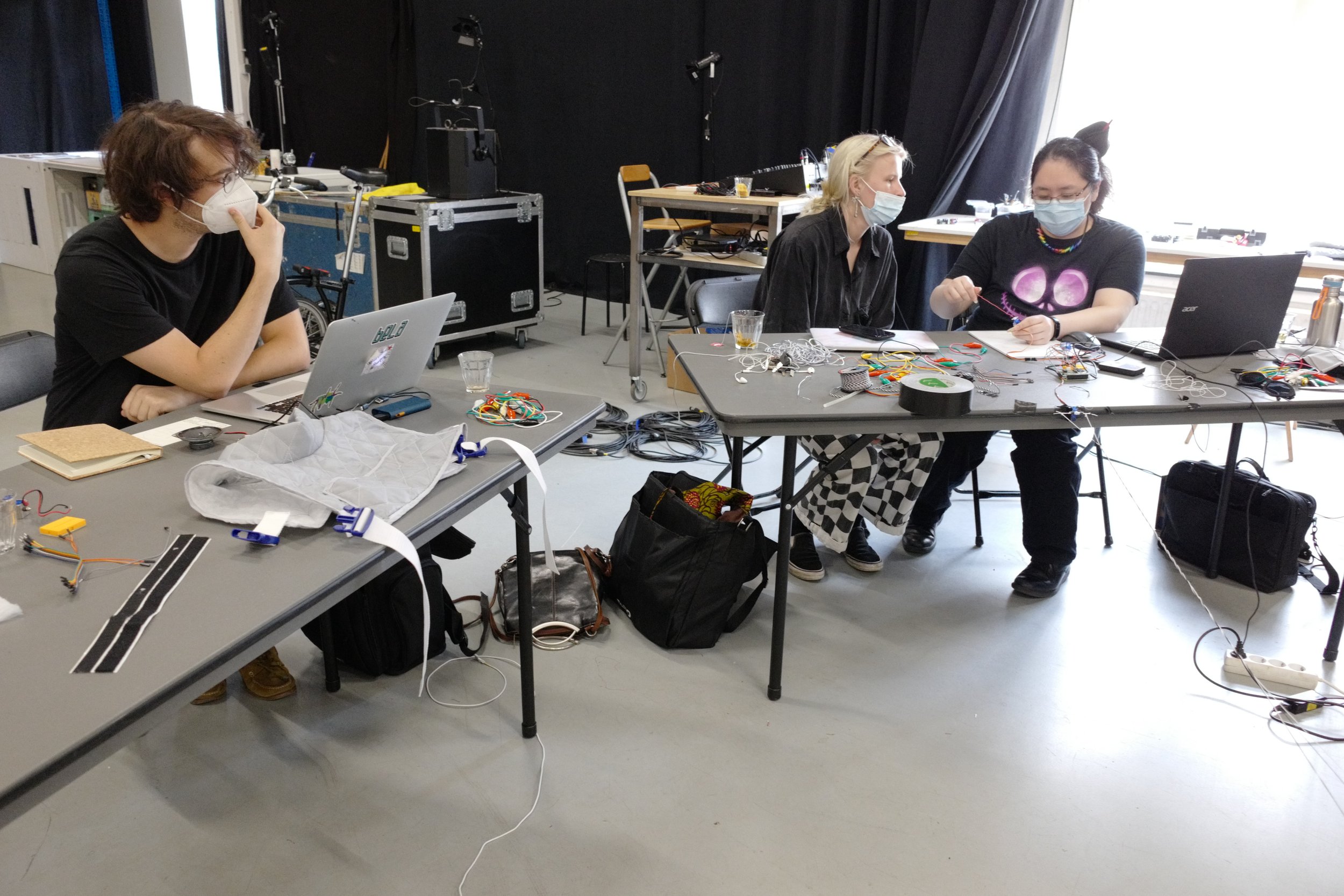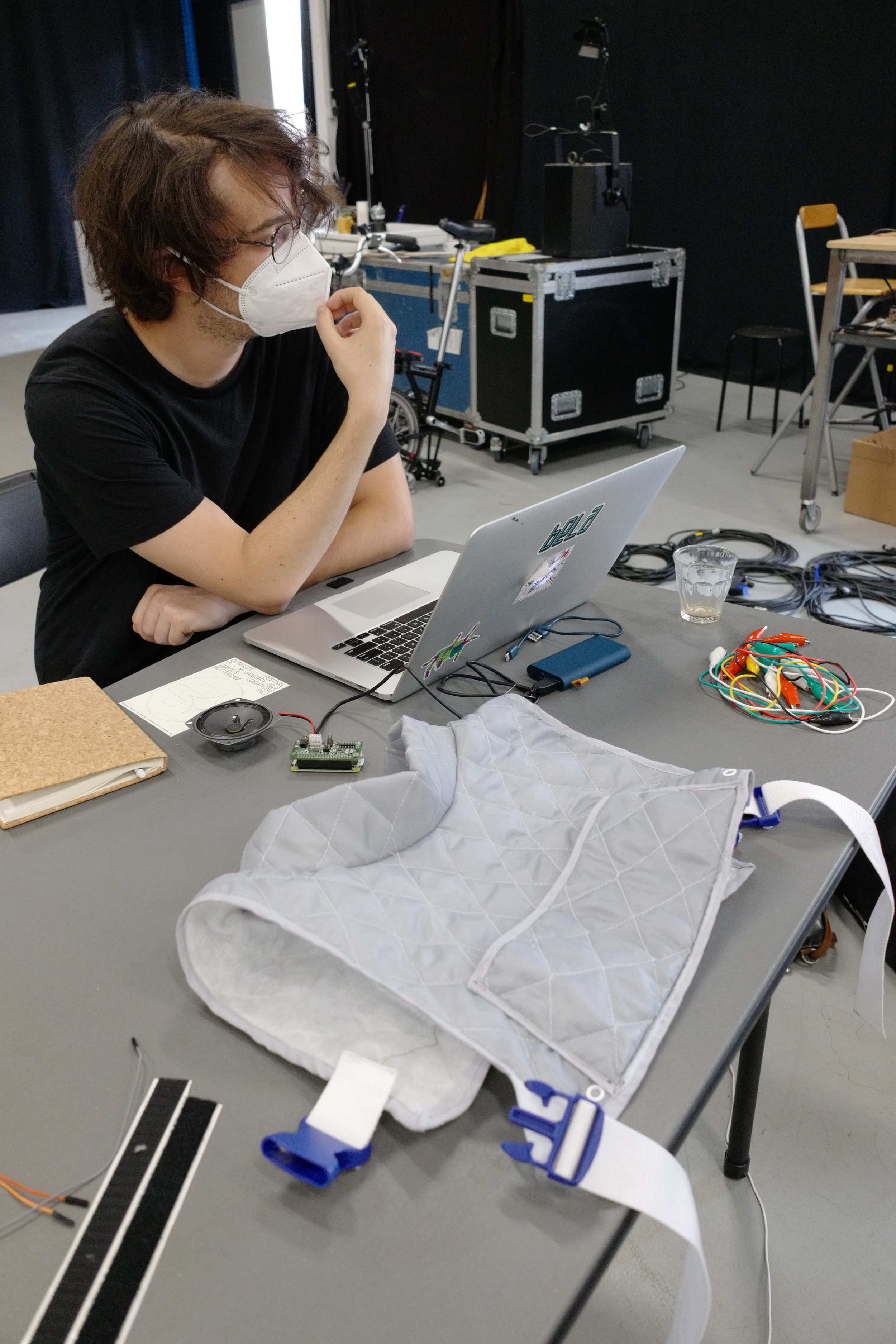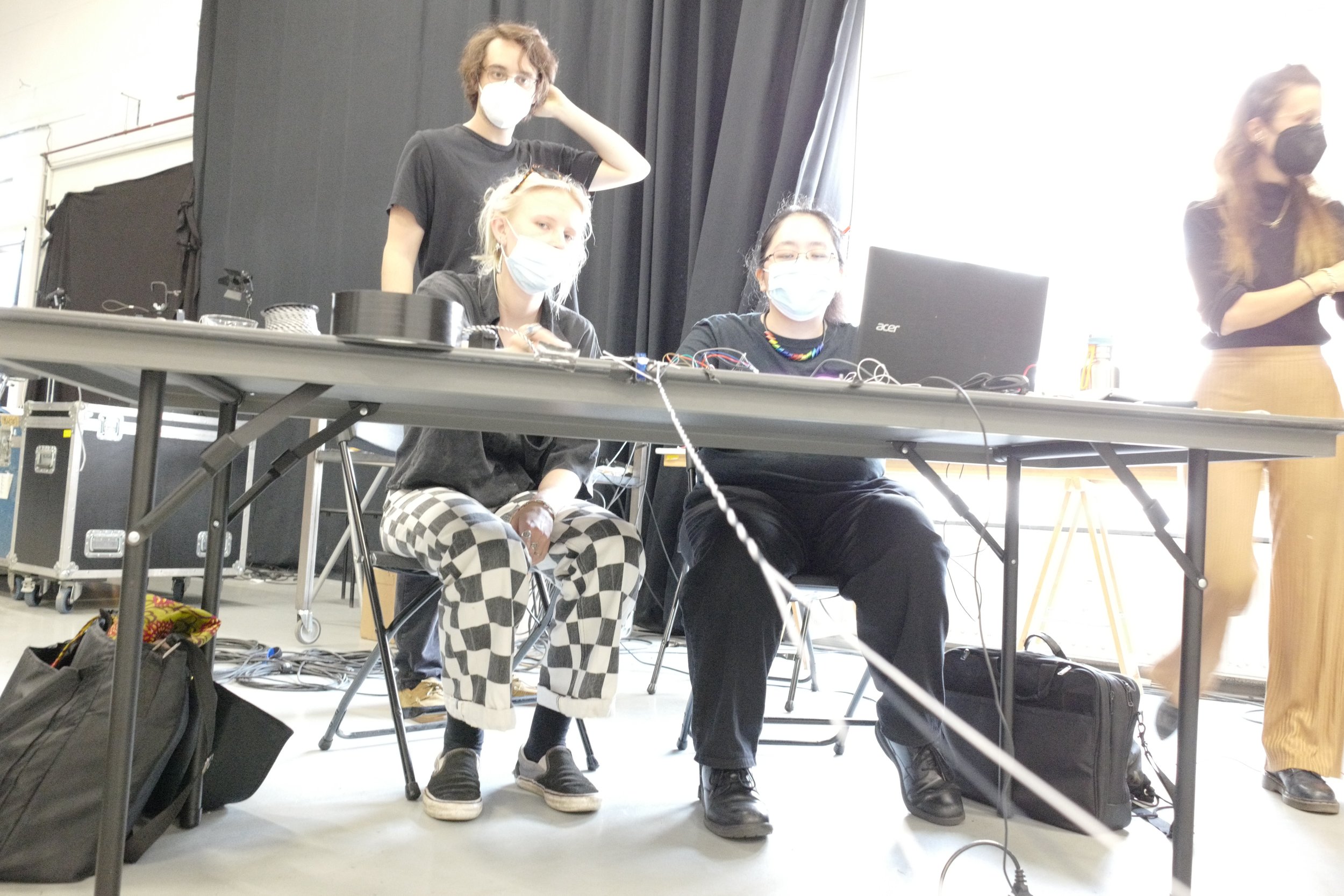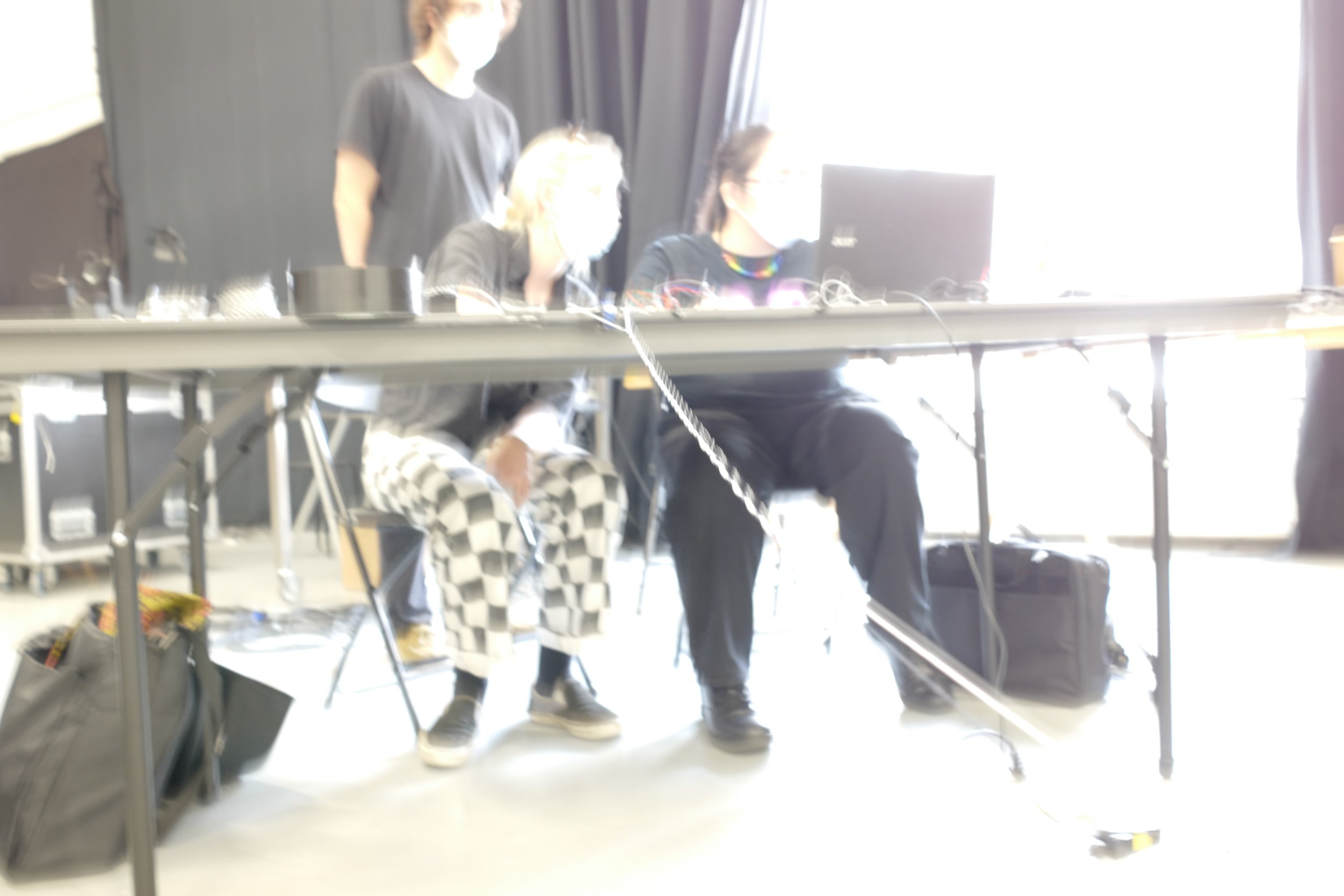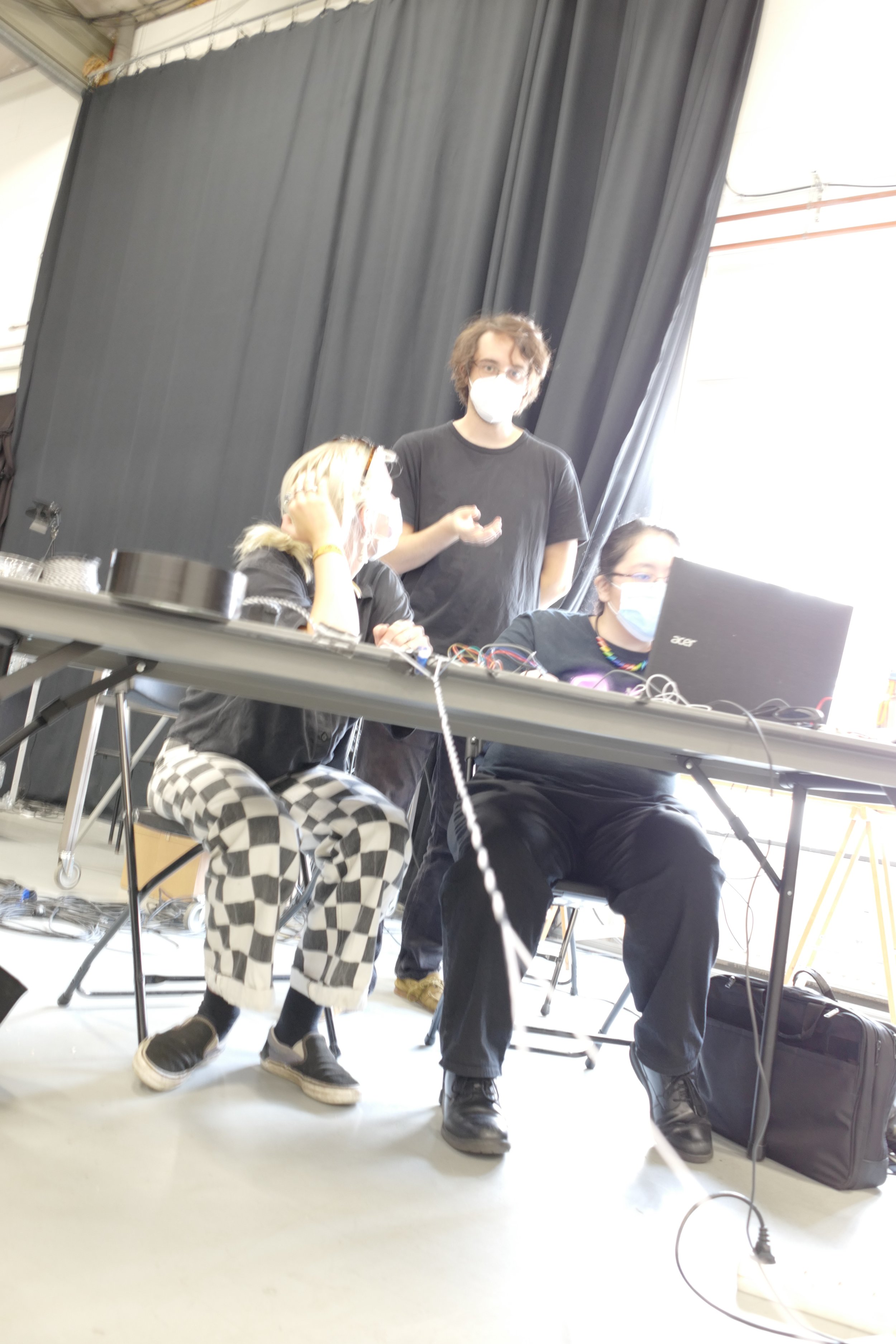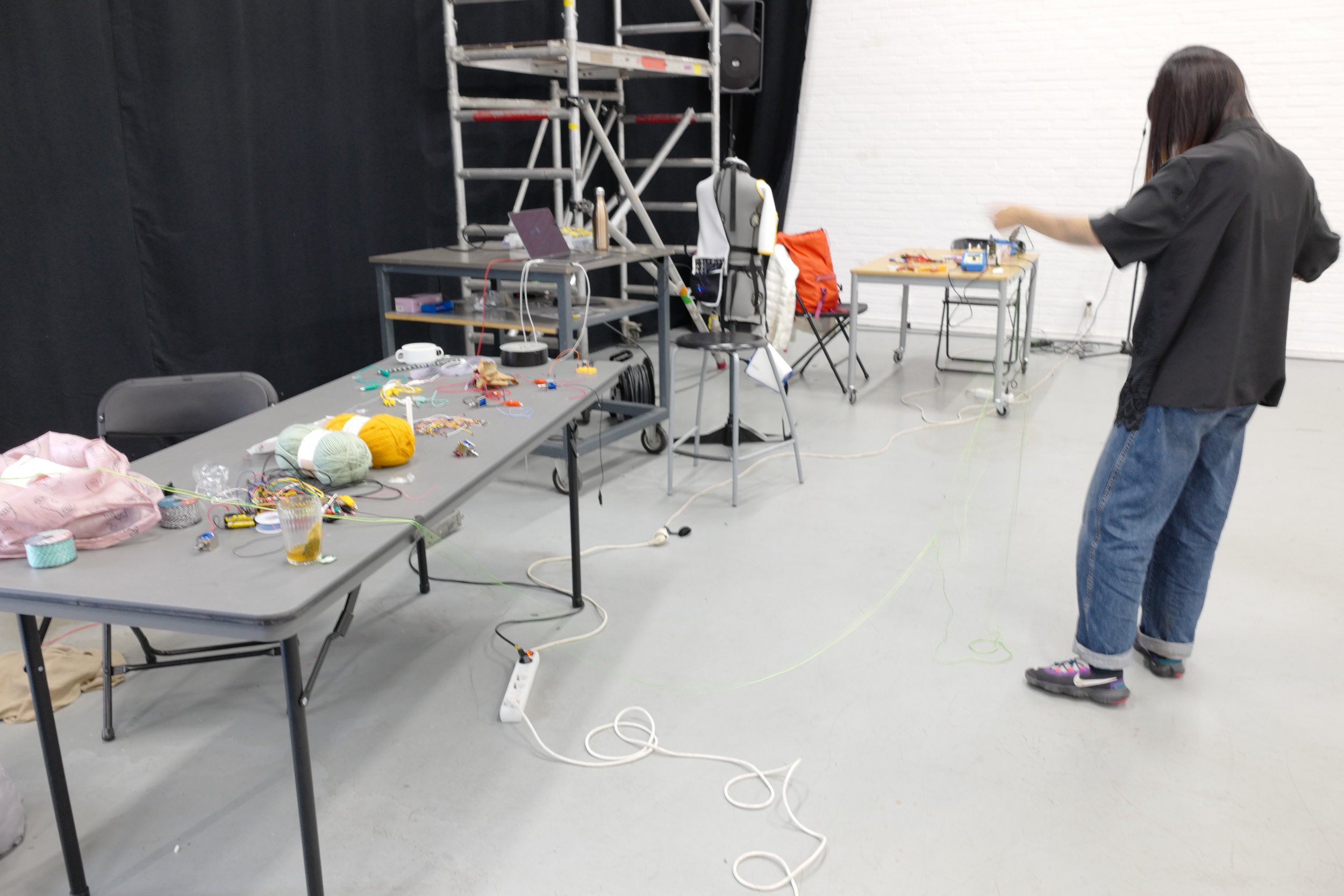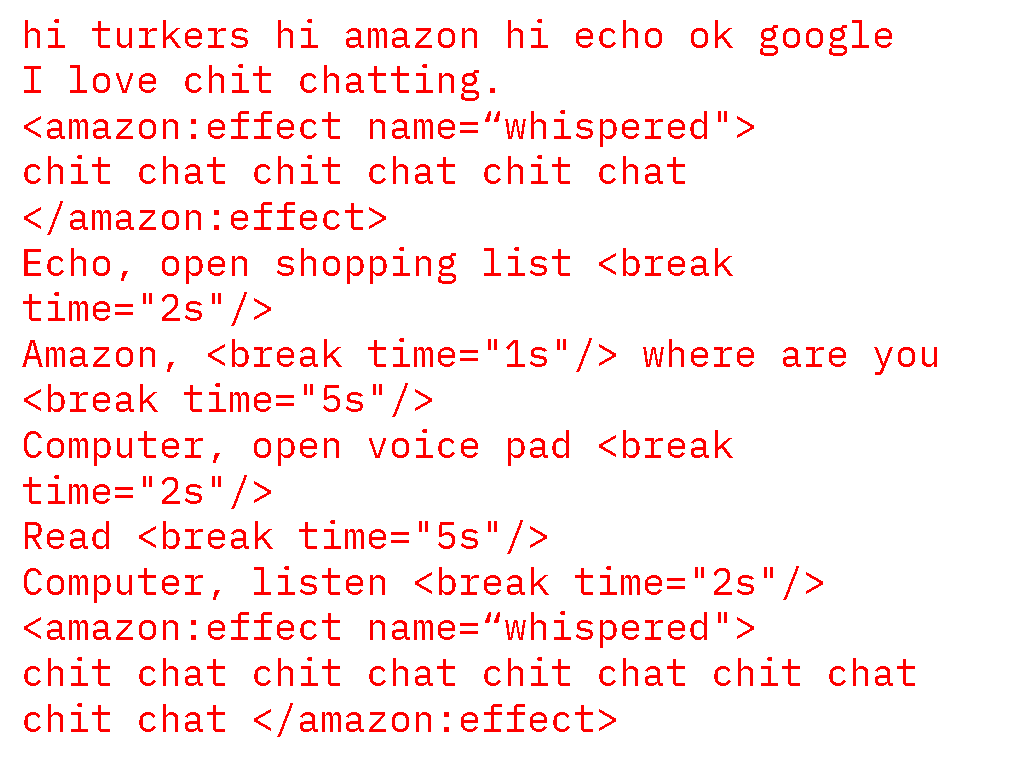Ventriloquist Ontology by Afroditi Psarra
On September 2021 I had the opportunity to spend a full month at the Instrument Inventors Initiative in The Hague, Netherlands where I developed the wearable prototype for this system and collaborated with media performer Tingyi Jiang to present the work publicly.
Inspired by Alejandro Jodorowsky's dystopian theatrical play "The School of Ventriloquists" brought to life by Belgian theater company Point Zéro in 2008, in this project I propose the creation of a wearable that takes over the wearer's body and converts them into a puppet who' s movement is dictated by what they wear.
The conceptualization of the work began during the Algocracy panel at the 4S conference in August 2020 where I discussed with other artists and STS scholars what type of data would be used to train the language the model and speculate about the “conscious” aspect that could be produced. Some of the initial ideas included a dataset of quantified self data and their value, gender and body politics and bioethics (p.e. genetic modification laws etc). The speculative prototype that I presented at 4S pertains to the approximation of the concept of algorithmic governance of the body, but also to experiment with policies around “bodies” as a means of creating sentience.
During Summer 2021 I worked towards creating the final dataset for training the language model and ended up including: excerpts of the US legal code that discusses body politics, factory manuals about body movement and optimization of production, academic articles around surveillance using wearable devices, queer theory texts, posthuman theory texts about cybergization of the body, and transhumanist texts about the technological extension of the body. After compiliing the data I trained a GPT-2 model using Google Collabs, and asked it to generate text using the follwoing prompts: “body”, “bodies”, “gender”, “cyborg", "politics", "queer", "binary", "movement”. I want to acknowledge here that a lot of this work was done with the invaluable help of my research assistant Sadaf Sadri, and consultation from HCDE PhD student Gabrielle Benabdallah. Additional custom Python scripts were developed by James Wenlock to help us scrape through PDFs and web sources for content for the dataset.
To construct the wearable interface I used white neoprene fabric, an Arduino BLE Sense microcontroller, and five Actuonix linear actuators. The wearable consists of five modular pieces with an actuator attached on each one and they are connected together using black fasteners and straps.
For the electrical connections I used soft silicone wires and metallic snaps in order to be able to connect and disconnect the modules separately, allowing for the modules to be adjustable to different body types. Due to the current draw of the linear actuators I had to use three 2500mAh lipo batteries that would allow me flexibility in terms of being able to do long rehearsals and not suffer power cuts.
On the software side of things, I collaborated with James Wenlock in the creation of a custom Python bridge script to communicate over OSC with SuperCollider, and a SuperCollider GUI that allows me to play back the generated GPT-2 text using a computerized voice, as well as to control manually the actuators on the performer’s body.
For a complete technical documentation of the project go to:
https://github.com/afrdt/Ventriloquist-Ontology
Here is a short documentary about the work filmed and edited by the talented Tanja Busking:
In the context of the iii residency, I instructed a public-facing workshop where participants could experiment hands-on with the idea of body control. In this 12-hour long workshop participants explored the use of wearable technology and speech-to-text application programming interfaces such as the Google AIY kit, while discussing ideas around the construction of identity around our bodies, and how algorithms dictate our movement through space. The participants worked together in groups and created performative experiments by actuating each other’s bodies. The last day of the workshop culminated in an experimental collective performance which formed part of the ‘Soft Control’ iii showcase.


